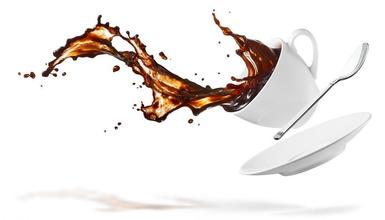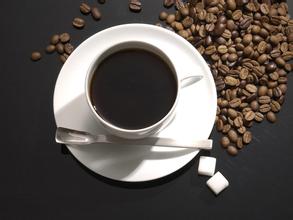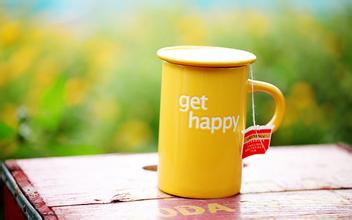Generally speaking, you don't need any water to make coffee.-introduction to hand flushing
Generally speaking, you don't need any water to make coffee.-introduction to hand flushing
About 98% and 99% of a cup of coffee is water, so make good coffee and make wine. just like brewing tea, good water quality can show the aroma and mellowness of coffee. so do the more delicious mineral water and coffee match? Because most mineral water contains sodium. Manganese. Calcium. Magnesium high hard water, hard water will hinder the release of tannic acid, and greatly reduce the taste of coffee, in addition, to avoid the use of water with disinfection odor, you can use the second boiling water, and the water that has just flowed out of the faucet early in the morning, and the most suitable for brewing coffee, it should be boiling water boiled on a gas stove. There is still a little carbon dioxide in this boiled water, which can better show the delicacy of coffee.
Of course, as the saying goes, "going too far is not as good as it is". No matter how good it is, we have to "enough is enough". Otherwise, regardless of drinking before and after meals, excessive caffeine will lead to hyperpalpitation (the heart beats violently), and even side effects such as trance, unstable walking center and so on.
In principle, it is appropriate to drink two to three cups of coffee a day. If you drink four or five cups, most people will feel sick, so be careful. In principle, no more than three cups a day are recommended for any kind of irritating drink. Caffeine can be exciting, because caffeine can stimulate the central nervous system and muscles, can eliminate muscle fatigue, improve work efficiency, have a sober effect, and make the mind more lively and sensitive.
Prevent cancer. Help digestion and prevent gastroptosis. Break down fat and control weight. Get rid of bad breath. Promote blood circulation. Reduce cholesterol
Ideally, drink after a meal, which is beneficial but harmless. One of the benefits is to prevent the onset of allergies. As a result of allergic parasympathetic nerve excitation caused by asthma or allergic rhinitis, if it can promote sympathetic nerve excitement, inhibit parasympathetic nerve, it will help to prevent the attack. Especially serious allergic patients, some mild incentives can cause physical discomfort, coupled with psychological fear of allergies, often out of control. Therefore, it is recommended to make use of the advantages of caffeine to drink a cup of coffee in advance when allergies and asthma are about to occur (the patient feels it), which is quite preventive. In addition to the exciting effects of caffeine, patients have "already drunk coffee" sense of security psychologically, and are less likely to have an attack. Ideally, drink after a meal, which is beneficial and harmless. Some people think that drinking with a little milk can ease its irritating effect, but how much of a small amount of milk can neutralize caffeine, unless half milk and half coffee, mixed with coffee milk or milk coffee, may have some effect. For example, coffee and milk for breakfast, because there is more milk than coffee, although it is drunk on an empty stomach, it still has the effect of relieving gastric juice.

Important Notice :
前街咖啡 FrontStreet Coffee has moved to new addredd:
FrontStreet Coffee Address: 315,Donghua East Road,GuangZhou
Tel:020 38364473
- Prev

Introduction of grinding scale manor for differential treatment of sun-cured and washed coffee beans
Variety characteristics of sun-washed and washed coffee beans grinding scale manor introduction of coffee fruits picked from coffee fields should not be mistaken. They must be sent to the treatment plant on the same day and underdeveloped. Immature. Ripe fruit retains ripe red fruit. The most simple and effective method is to pour all the fruit into a large trough. Ripe fruit and half-green and half-red fruit are heavier and will sink into the trough.
- Next

Introduction to fancy Coffee-- Video skills of Starbucks Cappuccino Coffee
About fancy coffee introduction-Starbucks cappuccino coffee video skills 1OZ fresh cream a little lemon peel chopped cinnamon powder appropriate amount of sugar 2 tablespoons of sugar: 1, pour brandy into the coffee cup 2, fill the cup with brewed coffee 3, add 2 tablespoons sugar to coffee 4, pour cream on coffee 5, lemon peel and cinnamon powder
Related
- What is the meaning of lactic acid fermentation with coffee bean treatment?
- How to judge the state of foam by sound?
- How does the latte pull out the unicorn pattern? Come to get for a little trick to improve the flower pull!
- Will flower pulling affect the taste of the latte?
- Do you know the history of coffee?
- The difference between honey treatment and sun washing what is raisin honey treatment?
- What kind of milk can a novice use to make coffee foam to keep the foam longer? The correct method and skills of milking tutorial sharing
- Why do washed coffee beans taste sour? Flavor characteristics of washed Coffee
- Introduction to the skill of how to practice the size and height of water injection around the circle of hand-brewed coffee
- How do beginners practice coffee flower drawing from scratch?

